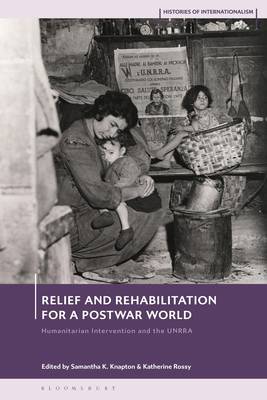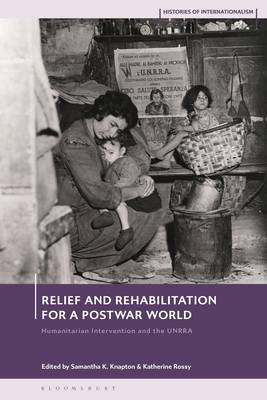
- Afhalen na 1 uur in een winkel met voorraad
- Gratis thuislevering in België vanaf € 30
- Ruim aanbod met 7 miljoen producten
- Afhalen na 1 uur in een winkel met voorraad
- Gratis thuislevering in België vanaf € 30
- Ruim aanbod met 7 miljoen producten
Zoeken
Relief and Rehabilitation for a Post-War World
Humanitarian Intervention and the Unrra
€ 203,95
+ 407 punten
Omschrijving
One of the world's first truly international humanitarian organisations, the United Nations Relief and Rehabilitation Administration (UNRRA) was championed as a beacon of postwar philanthropy that sought to rehabilitate as well as provide relief. This edited volume offers the first comprehensive study of the UNRRA and seeks to identify the key successes, limitations and enduring challenges it faced in the postwar period.
Tracing the rehabilitation of displaced children in the camps of Germany and Austria, to mountainous Greek villages without access to food or medical supplies and refugees in postwar China, it will assess the immediate impact of UNRRA rehabilitation policy on postwar reconstruction, international development and broader humanitarian processes. Through these international case studies it will explore the ways in which a fundamental inability to define 'rehabilitation' made it seemingly impossible to meet its objectives. As a predecessor to modern specialised agencies such as UNESCO, WHO and UNICEF, studying the UNRRA is crucial for our understanding of the history of the United Nations, the circumstances that shaped its future policies and the foundations of modern humanitarianism.Specificaties
Betrokkenen
- Uitgeverij:
Inhoud
- Aantal bladzijden:
- 232
- Taal:
- Engels
- Reeks:
Eigenschappen
- Productcode (EAN):
- 9781350179110
- Verschijningsdatum:
- 14/12/2023
- Uitvoering:
- Hardcover
- Formaat:
- Genaaid
- Afmetingen:
- 156 mm x 234 mm
- Gewicht:
- 503 g

Alleen bij Standaard Boekhandel
+ 407 punten op je klantenkaart van Standaard Boekhandel
Beoordelingen
We publiceren alleen reviews die voldoen aan de voorwaarden voor reviews. Bekijk onze voorwaarden voor reviews.






